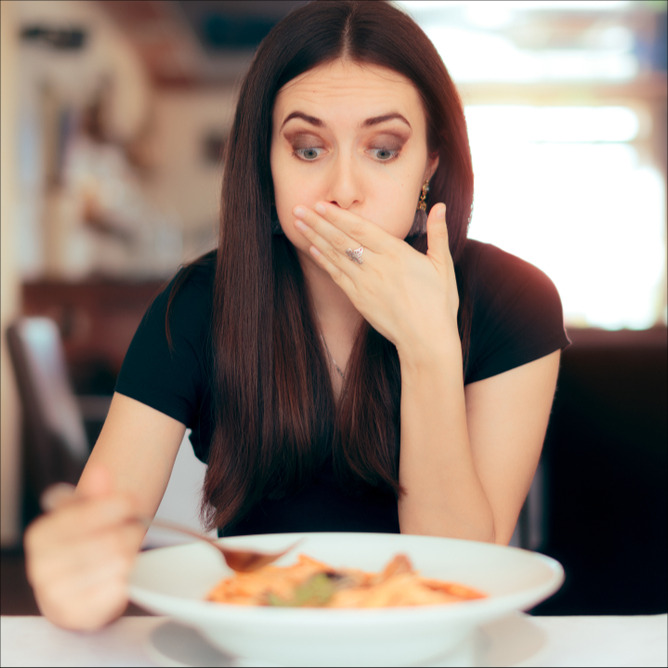
Food poisoning
Recognising and preventing food poisoning: A comprehensive guide
Food poisoning can affect any of us and often the symptoms are not only unpleasant, but can also have serious health consequences.
In this comprehensive guide, we would like to show you how to recognise food poisoning, what causes it, how you can prevent it and what to do if you do get it.
What is food poisoning?
Food poisoning, also known as food poisoning, occurs when you consume food that is contaminated with harmful bacteria, viruses, parasites or chemicals .
Symptoms can vary from mild gastrointestinal discomfort to serious illness.
Causes of food poisoning:
The most common pathogens that cause food poisoning are bacteria such as Salmonella, E. coli and Listeria, viruses such as the norovirus and parasites such as Toxoplasma gondii.
Chemical contamination can be caused by improper storage or processing of food.
Symptoms of food poisoning:
Symptoms can vary depending on the cause of the poisoning but often include nausea, vomiting, diarrhoea, abdominal cramps and fever.
Symptoms can occur from a few hours to several days after eating the contaminated food.
Prevention of food poisoning:
1. Hygiene:
The most important preventive measure is good hygiene. Wash your hands thoroughly with soap and water before and after preparing food, after using the toilet and after contact with animals.
2. Correct storage:
Store food at the correct temperature. Refrigerate perishable food as quickly as possible and follow the storage instructions on the packaging.
3. Careful preparation:
Avoid cross-contamination by keeping raw meat, poultry and fish separate from other foods. Use separate chopping boards and knives for different types of food.
4. Cooking and heating:
Cook food sufficiently to kill harmful microorganisms. This is particularly important for meat, poultry, eggs and seafood.
5. Attention for risk groups:
Certain groups of people such as pregnant women, older people, small children and people with a weakened immune system should be particularly careful and, for example, avoid eating raw or undercooked meat .
What to do in the event of food poisoning?
1. Sufficient fluids:
Diarrhoea and vomiting can lead to dehydration. It is important to drink plenty of water or electrolyte solutions to compensate for the loss of fluids.
2. Light food:
When you can eat again, start with light food such as toast, rice or bananas and avoid fatty, spicy or difficult to digest foods.
3. Medical help:
See a doctor if the symptoms are severe, last longer than a few days or if you have a high temperature, blood in your stools or signs of dehydration such as excessive thirst, dry mouth or little urination.
Summary
Food poisoning is not only unpleasant, but can also lead to serious health problems.
You can significantly reduce the risk of food poisoning by practising good kitchen hygiene, careful food preparation and storage and conscious food handling . However, if you notice symptoms of food poisoning, it is important to act quickly to avoid complications.
We hope that this guide will help you to be better informed about food poisoning and to protect yourself and your loved ones from it . Stay healthy and take care of yourself and your diet.
Become a member now
As a member, you will receive further information and frequencies on this topic! Log in here!
